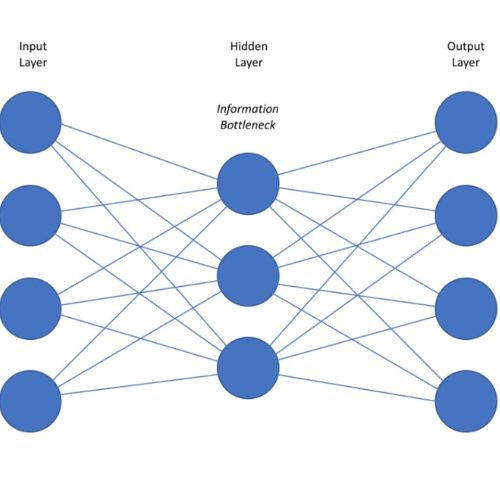Introduction
In today’s fast-paced digital world, technology is transforming how people live, work, and even travel. One of the significant areas where technology is making a huge impact is visa processing. Whether you’re applying for a tourist visa, work visa, or student visa, modern technologies like artificial intelligence (AI), blockchain, and cloud computing are making the entire process more efficient, secure, and transparent. This article explores how technology is reshaping visa processing, the key benefits it brings, and the innovations to watch out for in the future.

The Importance of Streamlined Visa Processing
Before delving into the technological advancements, it’s essential to understand why efficient visa processing is critical. As globalization increases, more people are moving across borders for tourism, work, or education. This has led to a surge in visa applications, making traditional manual methods time-consuming and prone to errors. Delays in processing can disrupt travel plans, business operations, and even employment opportunities. Technology addresses these challenges by streamlining the entire visa application process, ensuring faster approvals and minimizing errors.
How Technology is Changing Visa Processing
- Online Visa ApplicationsThe most evident change in visa processing is the shift from paper-based applications to digital platforms. Today, most countries offer online visa application services that allow travelers to fill out forms, upload documents, and make payments electronically. This not only reduces paperwork but also improves accuracy, as online forms often come with real-time validations that ensure applicants provide all the required information before submission.Online visa applications are also more convenient for users, allowing them to apply from anywhere in the world without having to visit embassies or consulates physically. Many platforms offer status updates and notifications, keeping applicants informed about their application’s progress.
- Artificial Intelligence (AI) in Visa ProcessingArtificial Intelligence (AI) is playing a crucial role in transforming the visa processing industry. AI-driven systems can quickly analyze applications, compare data, and identify any discrepancies or missing information. This speeds up the initial review phase, allowing human officers to focus on more complex cases.AI also helps with fraud detection by identifying patterns and flagging potentially fraudulent applications. This enhances the security of visa processing and helps governments protect their borders from unauthorized entrants.
- Biometric Technology for Secure Identity VerificationOne of the key concerns in visa processing is ensuring that applicants are who they claim to be. Biometric technology, which includes fingerprinting, facial recognition, and iris scanning, is becoming increasingly common in the visa application process. These technologies allow for more secure and accurate identity verification, reducing the risk of identity fraud.Biometric data is stored in secure databases, and upon arrival in the destination country, border control officers can verify the traveler’s identity by comparing it with the biometric information submitted during the visa application process. This ensures that only authorized individuals can enter the country.
- Blockchain for Secure Data ManagementBlockchain technology is well-known for its applications in cryptocurrency, but it also has the potential to revolutionize visa processing. One of the key benefits of blockchain is that it provides a decentralized and tamper-proof ledger for storing data. In visa processing, this can be used to securely store applicants’ personal and travel information.Blockchain’s immutability ensures that once information is recorded, it cannot be altered without detection. This adds an extra layer of security to the visa application process and reduces the risk of data breaches. Blockchain can also facilitate secure sharing of visa and travel information between countries, making it easier for travelers to move across borders.
- Cloud Computing and Data AccessibilityCloud computing is another technology that is streamlining visa processing. By storing visa applications and related data in the cloud, governments and visa processing agencies can access and manage the information more efficiently. Cloud-based systems are scalable, meaning they can handle large volumes of applications during peak travel seasons.Additionally, cloud-based visa processing platforms offer greater accessibility, allowing applicants to check the status of their visa from any device with an internet connection. Cloud technology also ensures that data is backed up regularly, reducing the risk of losing important documents.
The Benefits of Technology in Visa Processing

- Faster Processing TimesOne of the most significant benefits of using technology in visa processing is the reduction in processing times. Automated systems and AI-driven algorithms can quickly review applications, verify documents, and flag any issues, speeding up the entire process.Applicants no longer have to wait for weeks or months to receive their visas, making it easier for them to plan their travels or move forward with job offers or educational opportunities abroad.
- Improved Accuracy and SecurityTechnology reduces the likelihood of human errors in visa processing. Online forms come with built-in checks to ensure all necessary information is provided, while AI systems can cross-check data to identify any discrepancies. Additionally, biometric technology and blockchain enhance the security of the process, ensuring that personal information is protected and that applicants’ identities are accurately verified.
- Enhanced Customer ExperienceWith online applications, cloud-based platforms, and real-time status updates, applicants can enjoy a more convenient and transparent experience. They no longer need to deal with long queues at embassies or worry about paperwork getting lost. Instead, they can complete their applications from the comfort of their homes and track the progress with ease.
- Cost Efficiency for GovernmentsTechnology not only benefits applicants but also reduces the administrative burden on governments. Automated systems can handle large volumes of applications without the need for additional staff, leading to significant cost savings. Governments can allocate their resources more effectively, focusing on more critical aspects of immigration control.
The Future of Technology in Visa Processing
As technology continues to advance, we can expect even more innovations in the visa processing industry. AI will likely become more sophisticated, handling complex cases with minimal human intervention. Biometric technologies will improve in accuracy, offering faster and more secure identity verification.
Blockchain’s role in visa processing is also expected to grow, with more countries adopting it for secure data sharing and management. Additionally, advancements in machine learning and predictive analytics may help immigration authorities forecast application trends, enabling them to allocate resources more efficiently.
Conclusion
Technology is undeniably transforming visa processing, making it faster, more secure, and more convenient for both applicants and governments. From AI and biometrics to blockchain and cloud computing, these innovations are revolutionizing how visas are processed and approved. As technology continues to evolve, the visa application process will only become more efficient, paving the way for a future where cross-border travel is smoother and more accessible for everyone.

